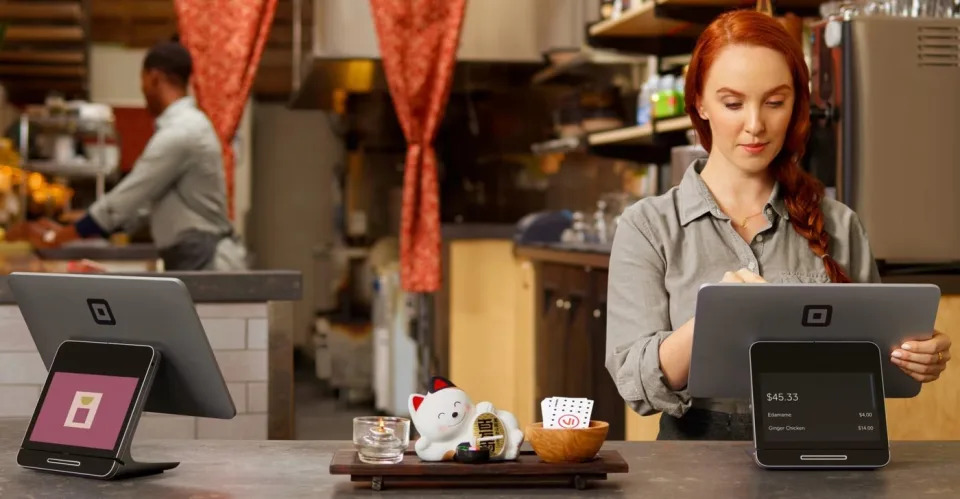News
Where Will Block Stock Be in 3 Years?
Block 's (NYSE: SQ) stock has shed three quarters of its value during the past three years. The fintech stock was a market darling in 2021, but its luster faded as growth cooled and rising interest rates hurt its valuations.
Let's take a fresh look at Block to see if its shares will head higher or lower over the next three years.
An evolving business model
Block splits its fintech business into two ecosystems: Square and the Cash App. Square provides digital payment, payroll, and analytics tools for merchants. It also sells point of sale (PoS) hardware for brick-and-mortar stores.

The Cash App offers peer-to-peer payments, Bitcoin (CRYPTO: BTC) trades, commission-free stock trades, tax filing tools, and savings accounts. It's linked to a debit card that works wherever Visa cards are accepted.
Block has also been integrating AfterPay -- the buy now, pay later ( BNPL ) platform it acquired in 2022 -- into its Square and Cash App services.
Block's diversification pits it against a broad range of fintechs like PayPal , Robinhood , and Affirm . It also indirectly competes against traditional banks and tech giants like Apple that are launching more first-party fintech services.
Why did Block's stock tumble over the past three years?
In 2023, Block generated 43% of its revenue from Bitcoin transactions on its Cash App. It also has accumulated bitcoins and held them on its balance sheet.
Another 29% of Block's revenue came from transaction-based revenue, while 27% came from its subscription and services. The remaining 1% came from its lower-margin hardware business. Here's how those four businesses fared during the past 4 1/2 years.
|
Segment |
2020 |
2021 |
2022 |
2023 |
First Half 2024 (YOY) |
|---|---|---|---|---|---|
|
Bitcoin revenue growth |
785% |
119% |
(29%) |
34% |
17% |
|
Transaction-based revenue growth |
7% |
45% |
19% |
11% |
5% |
|
Subscription and services revenue growth |
49% |
76% |
68% |
31% |
23% |
|
Hardware revenue growth |
8% |
59% |
13% |
(4%) |
(8%) |
|
Total revenue growth |
101% |
86% |
(1%) |
25% |
15% |
Data source: Block. YOY = Year-over-year.
In 2020, the pandemic throttled the growth of Block's merchant-facing businesses. However, the Cash App's explosive growth in Bitcoin trading -- which was broadly driven by stimulus checks, social media buzz, and fear of missing out ( FOMO ) -- offset that slowdown. More consumers also adopted the Cash App for peer-to-peer payments throughout the pandemic. That momentum continued in 2021 as its merchant-facing businesses stabilized.
But in 2022, Bitcoin's price plummeted as rising interest rates drove investors away from cryptocurrencies and other high-risk investments. Those macro headwinds also throttled the growth of its merchant-driven services again. The challenges persisted during the past year even as Bitcoin bounced back.
As Block's growth cooled, rising rates popped its bubbly valuations. When its stock hit its all-time high of $281.81 on Aug. 5, 2021, its enterprise value reached $127 billion -- or 126 times the adjusted earnings before interest, taxes, depreciation, and amortization (EBITDA) it would generate in 2021. But today, it trades at just 12 times this year's adjusted EBITDA.
What will happen over the next three years?
Block's adjusted EBITDA margin (which it calculates as a percentage of its gross profit) rose from 17% in 2020 to 24% in 2023. It expects that figure to rise to 33% this year as it focuses on cutting costs instead of increasing sales.
From 2023 to 2026, analysts expect Block's net revenue to rise at a compound annual growth rate (CAGR) of 12% as its adjusted EBITDA rises at a CAGR of 36%. That outlook is stable -- but it assumes the macro environment will warm up, it can stay ahead of its competitors, and Bitcoin's price will stabilize and rise again. But those growth rates could still disappoint a lot of investors who had expected its growth to increase even more.
If Block meets those expectations and trades at about 12 times its trailing adjusted EBITDA by the end of 2026, its enterprise value could reach $54 billion by the beginning of 2027. That would represent a gain of about 50% from today.
Is Block's stock worth buying right now?
I sold all of my Block shares in early 2022. At the time, I thought it was becoming a jack of all trades but a master of none, it was relying too heavily on Bitcoin, and its stock was overvalued relative to its growth.
Block still faces a lot of the same issues more than two years later. It might gradually climb higher during the next three years, but I don't think it's a compelling buy right now as macro headwinds hold back the growth of its Square, Cash, and Bitcoin businesses.
Before you buy stock in Block, consider this:

